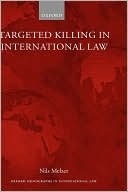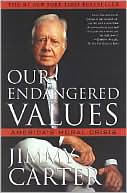Targeted Killing in International Law
Search in google:
A comprehensive analysis into the lawfulness of state-sponsored targeted killings under international human rights and humanitarian law, this book examines treaties, custom and general principles of law to determine the normative paradigms which govern the intentional use of lethal force against selected individuals in law enforcement and the conduct of hostilities. It addresses the relevance of the law of interstate force to targeted killings, and the interrelation of the various normative frameworks which may simultaneously apply to operations involving the use of lethal force.Through a comprehensive analysis of treaties, custom and general principles of law in light of jurisprudence, doctrine and travaux preparatoires the author demonstrates that contemporary international law provides two distinct normative paradigms which govern targeted killings in situations of law enforcement and the conduct of hostilities. Based on the resulting normative paradigms, the author shows in what circumstances targeted killings may be considered as internationally lawful. The practical relevance of the various conditions and modalities are illustrated by reference to concrete examples of targeted killing from recent state practice.The book argues that any targeted killing not directed against a legitimate military target remains subject to the law enforcement paradigm, which imposes extensive restraints on the practice. Even under the paradigm of hostilities, no person can be lawfully liquidated without further considerations. As a form of individualized or surgical warfare, the method of targeted killing requires a "microscopic" interpretation of the law regulating the conduct of hostilities which leads nuanced results reflecting the fundamental principles underlying international humanitarian law.The author concludes by highlighting and comparing the main areas of concern arising with regard to state-sponsored targeted killing under each normative paradigm and by placing the results of the analysis in the greater context of the rule of law.*The author has conceived and written this book in an entirely personal capacity and independently from his function as a Legal Adviser in the Legal Division of the ICRC. The opinions expressed therein are his own and do not necessarily correspond to those held by the ICRC or its Legal Division.
A. State Practice and Legal Doctrine 1. The Notion of 'Targeted Killing'2. Current Trend towards Legitimization3. Targeted Killing in Contemporary Legal Doctrine4. The AnalysisB. Law Enforcement 5. The Paradigm of Law Enforcement6. Law Enforcement and the Conventional Human Right to Life7. Law Enforcement and the Protection of Life under International Humanitarian Law8. Law Enforcement and the Non-Conventional Human Right to Life9. Permissibility of Targeted Killing as a Method of Law EnforcementC. Hostilities 10. The Paradigm of Hostilities11. The Principle of Distinction under International Humanitarian Law12. Means and Methods in the Conduct of Hostilities13. Human Rights Law and the Paradigm of Hostilities14. Permissibility of Targeted Killing as a Method of Conducting HostilitiesD. Conclusions 15. Comparative Conclusions16. Epilogue: Targeted Killing and the Rule of LawAppendix: Selected Case Descriptions








